Focus. Without focus, no one would become an expert in anything, your consulting firm wouldn’t become a thought leader in your field, and superman’s eyes would cast a warm, rosy glow instead of piercing lasers.
A simple tool—the Focus Wheel—will help you and your consulting firm point your energy in the right direction.
Managing yourself and your consulting team can sometimes feel like herding kangaroos. Your boundless curiosity, eagerness to take on a variety of projects and hair-trigger boredom reflex all conspire to drag you and your team off task.
However, you can employ a simple, visual tool to bring organization to the chaos and consistency to your consulting firm’s efforts.
The Consulting Firm Focus Wheel
Step 1 – Build the Rings
On a virtual whiteboard (e.g., Mural, Miro, Collaboard, etc.), create four, concentric circles. Size the center circle so that it can hold no more than six, standard-size sticky notes.
The other circles can be as large as you’d like—err on the side of larger circles rather than smaller ones.
You can imagine the rings as tiers of a wedding cake. That won’t help tremendously on the exercise, but could appeal to anyone in your consulting firm who spends too much time watching Hallmark movies.
Step 2 – Segment Your Wheel
Divide the four circles into segments based on any criteria that will help you organize your projects and activities.
A few examples of methods for segmenting your Focus Wheel are:
- By practice area
- By major, annual initiative
- By core value
- By team member
- By geography/office
Step 3 – Brainstorm and Dump Ideas
Populate the outer ring of the wheel – the Someday/Maybe Ring—with any and every possible project, task and activity you and your team can think of.
Impose no limits. There’s room for every harebrained idea and insanely audacious, epic dream. As long as you can write it on a sticky, you can post it in the Someday/Maybe Ring.
Step 4 – Take a Stand
Shift items from the Someday/Maybe Ring to the Yes Ring based on the belief that your consulting firm should actually take action on the task, project or activity.
Anyone in your consulting firm can elevate any task to the Yes ring as long as they are prepared to devote their own time, energy or resources to the effort.
Step 5 – Commit
Collectively, as a team, promote items from the Yes Ring to the Next Ring. This step is where you move from individual preference to group consensus. The Next Ring contains items that your consulting firm is committed to act on.
If you’re a larger consulting firm, you may want to tackle this step within your leadership team.
If you’re a solo consultant, run through this step with your coach, mentor, advisor(s) and/or colleagues.
Step 7 – Review, Revisit and Revise
Revisit your Focus Ring every morning to ensure you, personally, are working on the right tasks.
Revisit your Focus Ring every week to ensure your team is directing their energy appropriately.
Keep your Focus Wheel alive. Anyone at any time can add to the Someday/Maybe ring. Periodically review the outer rings to see whether you can weed out ideas that will never, ever happen or that you no longer understand.
Decide whether you want to transfer items between rings.
When you complete, delete or transfer out an item in your Focus Ring, decide whether to move an item from the Next Ring into the center.
One obvious benefit of the Focus Wheel is that you know exactly where to spend your time and energy. However, there’s a hidden benefit that may be more important:
The Next Ring houses those almost priorities that steal energy and time because you know they’re not the current focus, but you also don’t want to forget about them.
Instead of “keeping the ember alive” for those secondary priorities, you can rest easy, knowing they’re in the Next Ring and will be promoted as soon as there’s room on the top tier.
Have you used the Focus Wheel or similar tool to keep yourself on track? I’d love to hear your experience (or reactions) in the comments section, below.
Text and images are © 2024 David A. Fields, all rights reserved.

 David A. Fields Consulting Group
David A. Fields Consulting Group 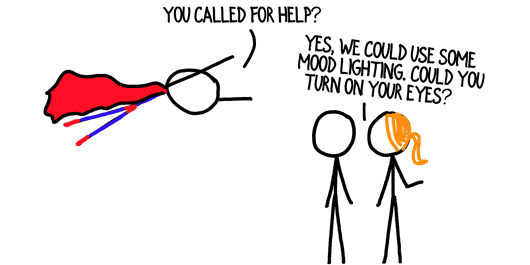

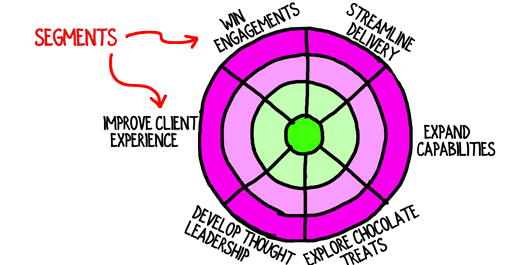
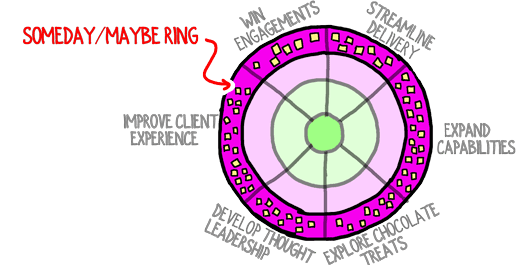
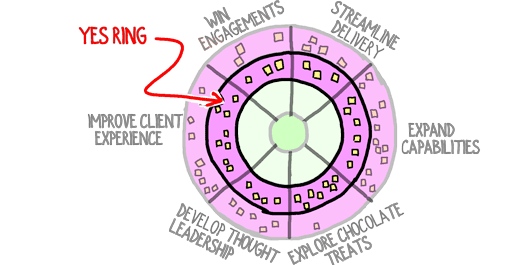
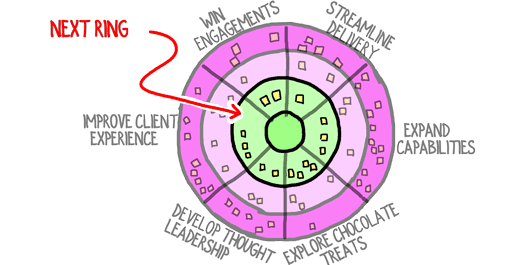
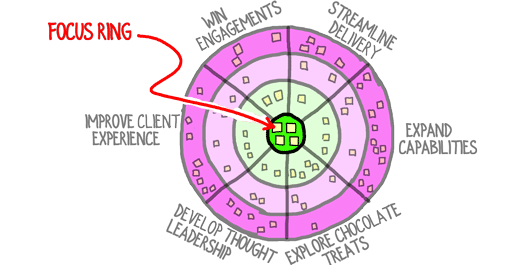
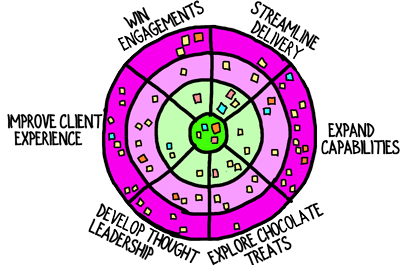
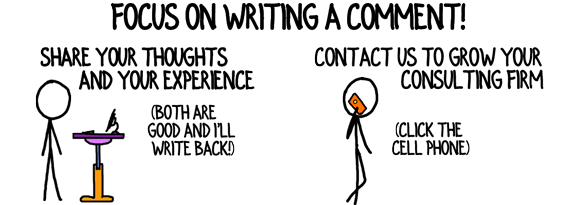

You have just changed my life, David. Brilliant.
Well, there ya’ go… my work here is complete! You made my day, Erin–thanks for posting your reaction.
Excellent concept of prioritizing the journey. Thank you!
Prioritization is everything–particularly for those of us who flit about from idea to idea to project to video to ice cream break to …
I appreciate you chiming in, Joe!
Reads David’s blog.
Immediately opens up new browser tab
Types mural.co
Builds rings
Focus wheel immediately changes this solo practice’s wandering mind
That is so cool, Rick! Congratulations on immediately putting the idea into action. What you did is impressive and inspiring, and I delighted you shared it.
(Also, good free-form poetry. Bonus gold star for that.)
Thanks for the simple, straightforward idea for this workshop. It also easily fits into my consultant’s toolbox for use with clients as well.
You’re absolutely right, Ken. This is a terrific tool to use with clients too. It fits into the toolbox more easily if you fold it along the segmentation lines. Thanks for highlighting the client-usage piece, Ken.
Thank you for a very practical approach! It is a great application of the first three of Stephen Covey’s “Seven Habits” :
> Be Proactive
> Begin with the End in Mind
> Put First Things First
Good tie-in, Pat! Hard to go wrong if you’re applying Covey’s habits. There’s some “Sharpen the Saw” in the process too. (That was Covey, right?) The virtual tools world has opened up terrific possibilities for applying tried-and-true principles in new ways. Many thanks for showing the connection, Pat.